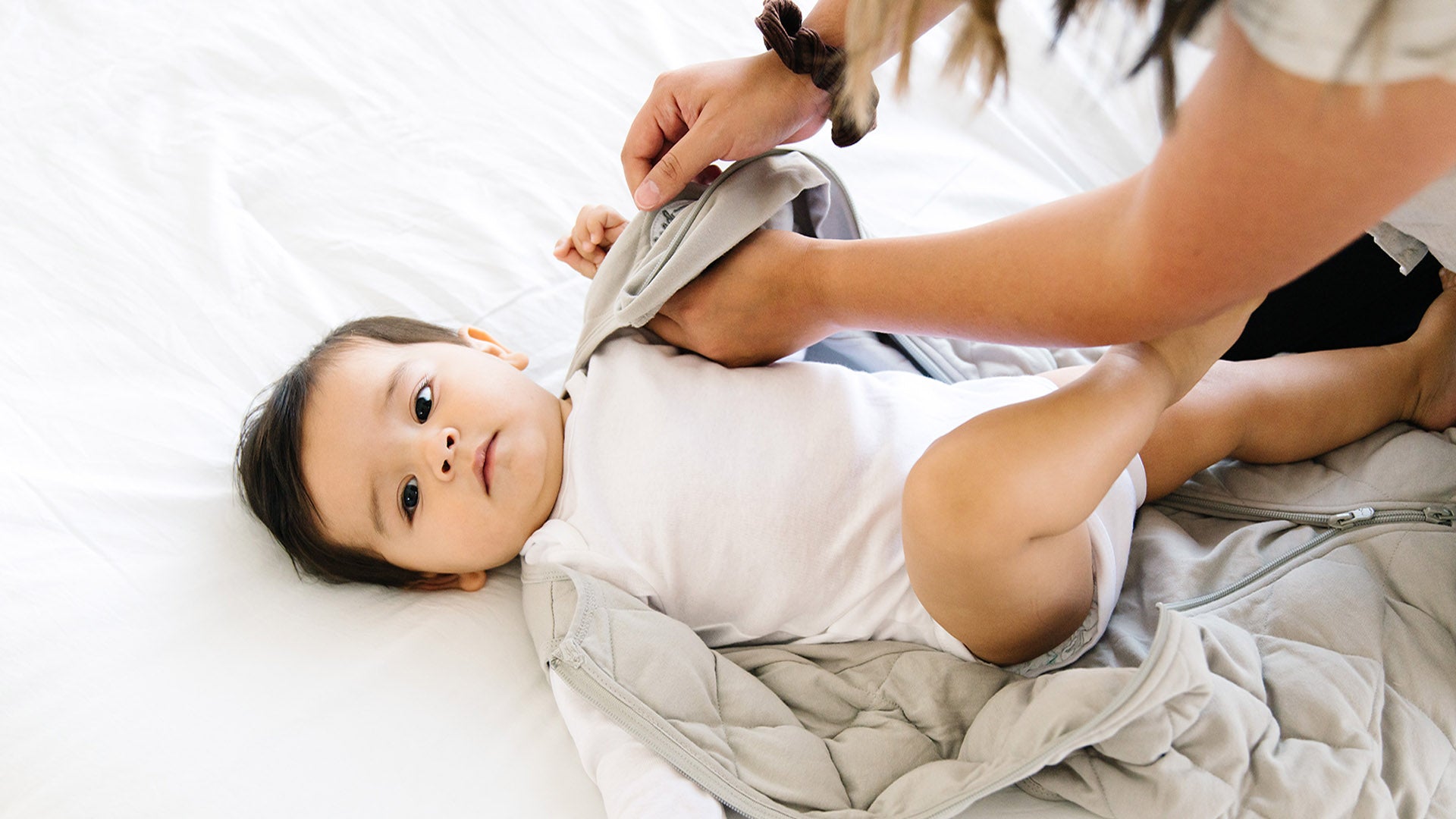Understand baby motor skill development and what to expect for your infant.
Baby motor skills are signs that babies are reaching their developmental milestones. They include crawling, sitting up, reaching for objects and holding them, and more. Ensuring your baby is developing motor skills on track is an important part of healthy development. So, when do babies develop motor skills? What motor skills should you be most focused on? To learn more about developmental milestones and motor skills, read on.
How do infants develop motor skills?
Babies develop motor skills when they are self-motivated and engaged. Parents can encourage baby motor development by giving their babies toys to play with and activities that will hold their interest.
It’s recommended to limit your baby’s time in equipment like bouncers and infant seats that restrain movement. Instead, keep them in a playpen that contains them while allowing them to move around.
Tummy time is a good way to encourage motor skill development as it develops strength in the neck, shoulders, and arms. Eventually your baby should be able to lift its head and crawl.
What are the stages of motor development?
Gross motor milestones are those that involve the large muscles of the legs, trunk, and arms. These types of baby motor skills develop at the following stages:
- 6 weeks: Babies can lift their heads while lying on their stomachs.
- 3 months: Babies can lift up their chest using their arms for support.
- 4 to 5 months: Babies can roll over from back to stomach.
- 6 months: Babies can sit up unsupported.
- 8 ½ months: Babies can crawl on their hands and knees.
- 10 ½ months: Babies can stand unassisted.
- 12 months: Babies can walk unassisted.
- Babies will also develop other milestones outside of gross motor milestones. These include:
- 2 months: Babies can hold on to small objects if they are placed directly into their hands. They may bring these objects up to their mouth.
- 4 months: Babies may reach for objects, but they won’t know how to grasp large objects efficiently.
- 6-9 months: Babies will become proficient at grabbing hold of moving objects.
- 11 months: Babies will show better planning for picking up large objects and will be able to reach with both hands at once.
What are babies' first motor skills?
Babies' first motor skills include holding their head up, sitting upright, and crawling. Eventually, they will begin standing and walking.
What motor skills develop during infancy?
Baby motor skills that develop during infancy include a variety of gross and fine motor skills. Gross motor skills can include sitting up or crawling. Fine motor skills can include picking up objects, reaching for toys, and following objects with eyes in all directions.
What are fine motor skills for infants?
Fine motor skills involve the ability to grasp small objects between the thumb and index fingers. They include being able to hold a utensil and eat from it, being able to hold a cup and drink from it, and later on, being able to draw and write.
What age do babies develop fine motor skills?
Parents may be wondering, when are fine motor skills developed?
Fine motor skills should start appearing between 8 to 10 months. At this age, babies will start attempting to drink from a cup and eat with a spoon. However, their attempts may be a bit clumsy and awkward at this age.
As time goes by, baby motor skills should improve. Babies may be adept at feeding themselves by the time they are 14 months.
Babies may begin showing writing and drawing abilities at 12 months. At first, they may draw lines and scribbles. But over time, their drawings will have more identifiable features.
Parents may see more controlled drawings around 18 months, but these types of motor skills can take some time to truly develop and may not fully appear until the child is three years old.

Shop Dreamland Baby
What motor skills should a 2 month old have?
A two-month-old should be showing the following baby motor skills development:
- Holds head up
- Begins pushing with arms or legs when lying on its stomach
- Makes smoother movements with arms and legs
- Moves arms and legs equally well
- Brings hands to mouth
- When should you start motor skills?
It’s never too early to start on your baby’s motor skills. Children can naturally start to develop fine motor skills during 1 to 2 months of age, but parents should help expand skills and support development from birth through adulthood.
How can parents stimulate the motor skills of their babies?
There are several things parents can do to stimulate baby motor development, including:
- Give them room to move: Limit your baby’s time in confined spaces like swings and highchairs. Instead, give them room to move by placing them in cribs and playpens.
- Include tummy time during play: Placing babies on their tummies will teach them to lift their heads and eventually crawl. Start by placing them on your chest, then move on to a mat on the floor.
- Give them the right challenges: Your child may get frustrated by their limitations, but it’s important to continue challenging them. For example, once they learn to sit on their own, hold a toy slightly out of reach so they can test their balance. Once they begin to grasp small toys, start giving them bigger ones.
- Make it fun: Make motor skill development fun by bringing in colorful toys or by asking a sibling to participate.
While being interactive and helping our children grow and develop is important, we must not forget what a good night's sleep can do for them. As your baby develops motor skills, they should tire faster, but going to sleep is not an easy task for most babies.


Share:
When Can Babies Sleep On Their Stomach?
What You Really Need To Know About Birth & Postpartum